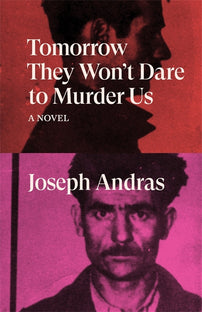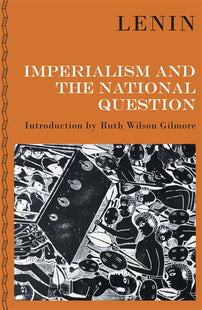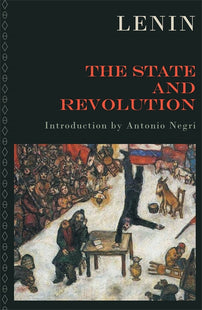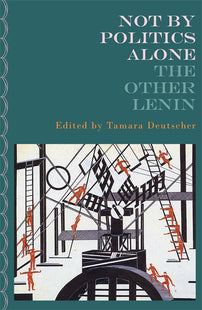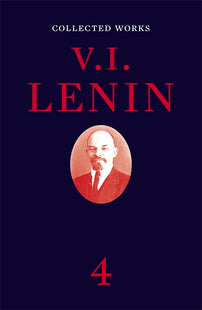The Novel of Lenin: Chapter Eight
The eighth installment of our nine-part series: The Novel of Lenin by Joseph Andras: Nicolas II Abdicates, The Storming of the Winter Palace Launches the Young Revolution.

1917-1921: Nicolas II Abdicates, The Storming of the Winter Palace Launches the Young Revolution
In March 1917, Nicolas II abdicates. The provisional government is overridden and Bolshevism spreads. In October, the seizure of the Winter Palace seals the young revolution. The whites arm themselves against the reds.
We are in 1917. In Russia, revolution explodes. The people, broken by war, rise up. The first strikes surge forth, women demand bread in the streets: Petrograd – the late Saint Petersburg – rises up against the power. There are cries against the war. There are cries against the dictatorship. Police stations are pillaged. The Tsar quickly dissolves the Duma and city regiments rally the insurgents. On March 15, Nicolas II abdicates.
It is said that, on that day, Lenin was preparing to leave for the library. A Pole called after him: “You don’t know? Revolution has exploded in Russia.” A provisional government is formed, led by a liberal. Simultaneously, the people organize around the Petrograd Soviet. Two powers henceforth confront one another. Lenin sends directions to his partisans: there can be no question of supporting the provisional government; all that counts is worker power, the second step of the growing revolution. The state machine must be dismantled and the people must be armed. Stalin rebuffs. He backs the new regime and calls for union with the Mensheviks. He even refuses to publish Lenin’s last letters in Pravda. Lenin has only one thought in mind: return to Russia. But he is not authorized. Negotiations are arranged with Germany, delighted to weaken its enemy by authorizing revolutionaries to pass through its lands. The train arrives at the station in Petrograd in April. Lenin descends. A fanfare plays the Marseillaise. Addressing the crowd, the Bolshevik praises the global socialist revolution. Come evening, he celebrates the death of social democracy and intones the International before his audience. Plekhanov calls him crazy, himself cautious to back the republican parliamentary system. The Mensheviks are persuaded that Russia is not ripe for socialism. The Soviets can serve as a point of support, but without substituting themselves for the government. Lenin protests: all power must go to the Soviets.
"Lenin’s return is the turning point of the Russian Revolution,” writes his biographer Jean-Jacques Marie. In short order, he proposes to change the party’s name: no longer “social-democrat,” but “communist.” No one follows him. Trotsky arrives on May 5. He leaves the United States behind him and decrees revolution, first in Russia and then for the entire world. The crowd carries him. The two men unite but Trotsky still does not wish to identify as a Bolshevik. He considers it vain to cling to old labels. Lenin remains deaf to his arguments, especially as he knew he could count on the existing 100,000 to 200,000 Bolsheviks. “However, Trotsky had no alternative but to accept Bolshevism. Trotsky was a brilliant general commanding a tiny squad of soldiers, while Lenin was the recognised leader of a great party” writes Tony Cliff in his Trotsky.
The provisional government weakly leans to the left. A future Constitutive Assembly is promised. Peasants begin to seize land, workers reclaim the 8-hour working day, soldiers wish for peace. A gap widens between base and summit to a breaking point. Here, fires; there, the beginning of insurrection. Bolshevism spreads and the government is overcome. In September, Trotsky is elected as head of the Petrograd Soviet. But if the state is fissuring more each day, Bolshevik leadership splits as well: Lenin promotes armed insurrection while others deem it premature. Lenin prevails. We know the rest: the nearly bloodless siege of the Winter Palace. Some hours later, Trotsky announces the dissolution of the provisional government. A coup d’état? A century later it is still discussed. “Far from being a coup d’état achieved by surprise, the insurrection represents the culmination and the provisional denouement of a feat of strength that had simmered all year long” objects the philosopher Daniel Bensaïd in 1997.
Socialist revolutionaries and Mensheviks rise up against what they consider to be a coup de force. Lenin doesn’t seem bothered. He has better things to do like decreeing the edification of the socialist order. The new regime immediately announces talks for peace, the abolition of large landholdings, the nationalization of the banks, worker control of production, an 8-hour workday, or even the sovereignty of all the peoples of Russia. It remains to outlast the Paris Commune, massacred on its 72nd day. In My Life, Trotsky confides that “no one could tell how much time we would have at our disposal.” For a revolution does not progress without its rotten shadow, counter-revolution. And it's already getting organized: the Whites are arming against the Reds. A first army intends to retake Moscow. Others will follow. But Lenin is said to have danced in the snow on the 73rd day.
A member of the Socialist-Revolutionary Party, hostile to Bolshevism, opens fire on Lenin. Two bullets hit him. He accuses the communist leader of betraying the revolution by trampling on the Constituent Assembly. His body is immediately burnt by the Cheka, the new political police. In Germany, it is also time for revolution. But a failed revolution. The Spartacists were crushed by the Social Democrats in the blink of an eye, and Rosa Luxemburg is thrown to the bottom of a canal, dead. Fearing "contagion" throughout Europe wished for by Russia, the Allies support the White forces in Russia. 14 states band together against the young revolution – it is carnage.
This text was originally published by L’Humanité in a special edition commemorating the centenary of Lenin’s death. Translated from the French by Patrick Lyons.
[book-strip index="1"]


